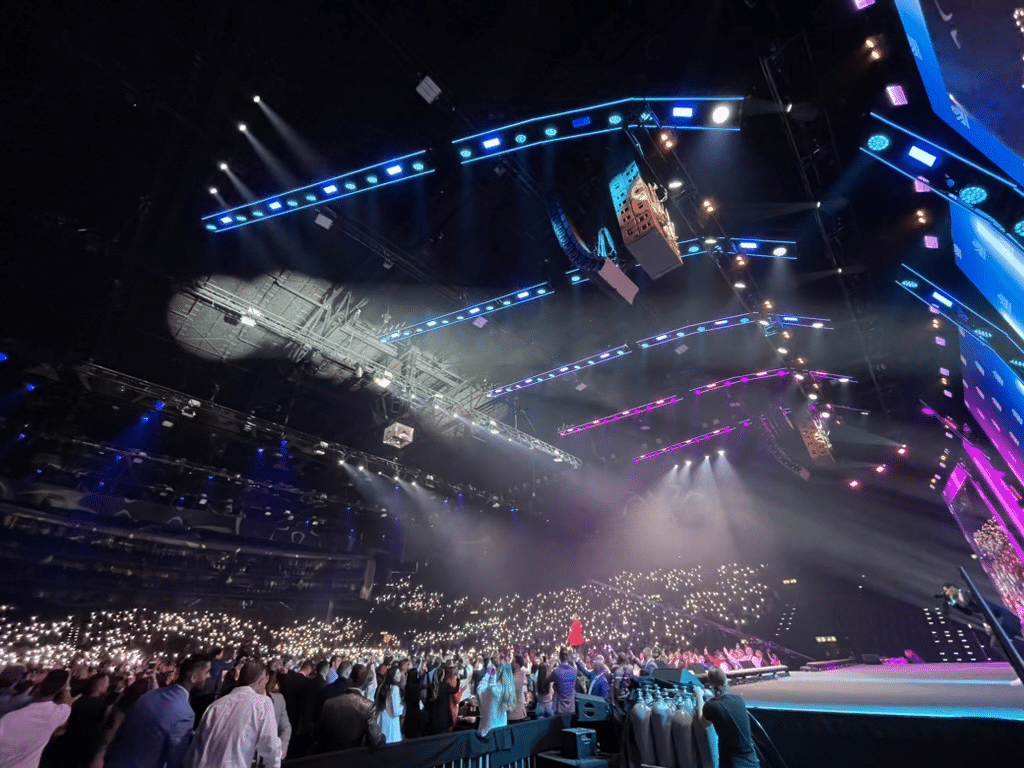Event marketing is a promotional strategy that uses in-person or virtual events to engage an audience and build brand awareness. It involves hosting, attending, or sponsoring events that allow brands to connect with potential customers in a more direct, impactful way. These events can range from trade shows and conferences to product launches, live events, and webinars. By providing real-time interactions and face-to-face communication, event marketing creates memorable experiences that help reinforce a brand’s identity and messaging.
Why Event Marketing is Important
In today’s digital marketing landscape, where email campaigns and social media posts can often feel impersonal, event marketing allows brands to interact with their target audience on a more personal level. By participating in future events, companies can create authentic connections with event attendees, fostering relationships that go beyond what digital marketing can achieve. Live events enable brands to build emotional connections, showcase their brand product or service, and differentiate themselves from competitors.
Event Marketing Strategies
To successfully leverage event marketing, businesses must develop a well-thought-out strategy. This strategy should include:
- Identifying the Right Type of Event: Whether it’s a trade show, conference, or product launch, the event should align with your brand’s goals and target audience. Understanding the nature of the event and its attendees is essential for creating relevant messaging and activities.
- Promoting Your Event: Effective event promotion requires a mix of marketing channels such as email marketing, social media posts, and blog posts to drive awareness and attendance. Building buzz before the event is crucial for attracting attendees and ensuring a successful turnout.
- Using Digital Marketing to Amplify Reach: While live events create meaningful in-person connections, integrating digital marketing channels such as social media and email can help you reach a broader audience. Posting live updates during the event, creating a social media campaign, or sending follow-up emails post-event can help sustain engagement and nurture leads.
- Building Brand Awareness: Event marketing is a powerful way to build brand awareness by giving your audience a tangible, real-time experience of your product or service. Showcasing your offerings at a well-executed event can significantly increase visibility and establish your brand as a trusted authority in your industry.
- Post-Event Engagement: Following up after the event is just as important as the event itself. Sending post-event surveys, thanking attendees via email, and posting event highlights on social media will help maintain connections and keep your brand top of mind for future events.
Types of Events for Event Marketing
- Trade Shows and Conferences: These are some of the most common formats for event marketing. They provide businesses with a platform to showcase their products or services to a targeted audience. Trade shows, in particular, are excellent for generating leads and building brand visibility.
- Product Launches: Product launches are specifically designed to introduce a new brand product or service to the market. They allow brands to engage directly with potential customers and media representatives in a live setting, offering firsthand experiences.
- Workshops and Seminars: Workshops and educational events offer brands the chance to share knowledge and expertise. Hosting an event of this nature can build trust and credibility while positioning the brand as an industry leader.
- Pop-Up Shops: While typically associated with retail, pop-up shops can be used as an effective experiential marketing tool for brands to create buzz and build brand awareness through temporary, in-person engagements.
The Benefits of Event Marketing
- Face-to-Face Interactions: In a world dominated by digital communication, face-to-face events allow for personal connections that build stronger relationships between brands and consumers. These interactions can often lead to higher conversion rates and increased loyalty.
- Immediate Feedback: Live events give brands the opportunity to receive real-time feedback from attendees. Whether through live Q&A sessions, post-event surveys, or casual conversations, this direct feedback can be invaluable for refining your products, services, and marketing strategies.
- Lead Generation: Events provide brands with the chance to generate high-quality leads. Event attendees are often more interested and engaged, making them more likely to convert into paying customers. The personal interaction at events helps build trust, facilitating the sales process.
- Brand Exposure: Participating in large-scale events like trade shows and conferences allows brands to reach a wide audience. Additionally, these events often attract media coverage, which can further amplify your reach and visibility.
- Social Media Engagement: Events offer an excellent opportunity for real-time social media engagement. Encouraging attendees to share their experiences online can increase your event’s visibility and help build an organic social media presence for your brand.
Event Marketing in the Digital Era
The rise of digital marketing has led to an increased demand for virtual and hybrid events. Virtual events allow brands to reach global audiences, eliminating geographical barriers and reducing costs associated with traditional event management. Additionally, digital marketing channels like email marketing and social media posts play a significant role in promoting and engaging event attendees.
However, even in the digital age, the value of in-person events remains strong. Face-to-face interactions provide a level of engagement that digital marketing can’t always replicate, making them a vital component of a well-rounded marketing strategy.
Creating a Guide to Event Marketing Success
When developing an event marketing strategy, consider these steps:
- Define Your Goals: Are you looking to generate leads, build brand awareness, or promote a new product or service? Having clear goals will help guide your event marketing plan.
- Know Your Audience: Tailor your event to your targeted audience’s needs and preferences. This ensures that your messaging and content resonate with event attendees.
- Leverage Multiple Marketing Channels: Promote your event through email marketing, blog posts, social media campaigns, and even partnerships with influencers to maximize exposure.
- Provide Real-Time Value: During the event, focus on creating meaningful, real-time interactions with attendees. Whether through product demonstrations, workshops, or Q&A sessions, delivering value in the moment can lead to stronger, long-lasting connections.
- Follow Up After the Event: Keep the conversation going post-event with follow-up emails, surveys, and social media content. This will help you nurture leads and maintain relationships.
Conclusion
Event marketing is a powerful way to build relationships, generate leads, and promote your brand product or service. Whether you’re hosting a large trade show, launching a new product, or engaging customers through virtual events, developing a strong event marketing strategy is essential for creating impactful experiences and building brand awareness. As digital marketing continues to evolve, integrating both in-person and online event strategies will be key to staying relevant and achieving long-term success.




